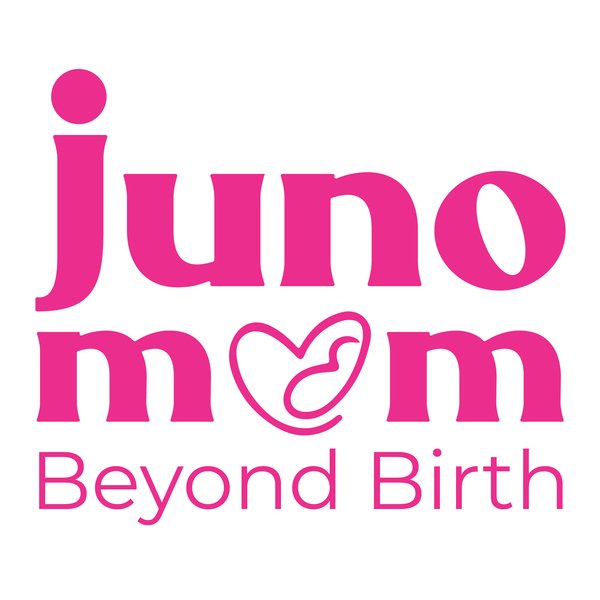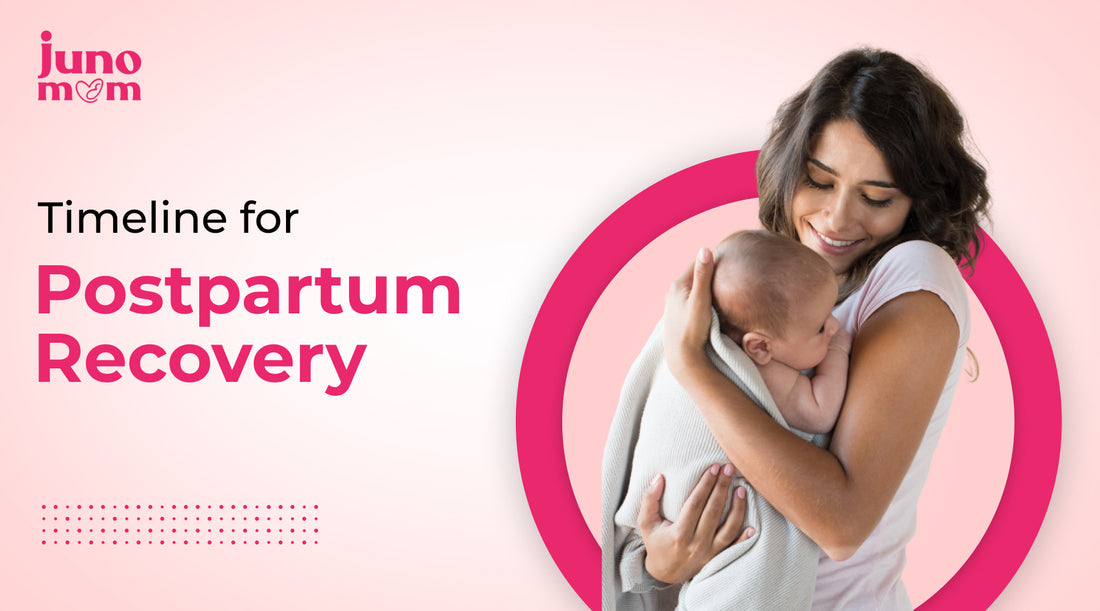Congratulations on stepping into motherhood dear mama. You did a good job through your nine-month journey of holding a life within you and giving birth.
The postpartum period, often called the "fourth trimester," is a time of immense change, recovery, and adjustment. Just as your body transformed to support your baby during pregnancy, it now goes through a gradual healing process to return to its pre-pregnancy state. You will slowly go back to being your usual self, but not exactly the same ever. You made it till here and this new journey of postpartum recovery can be a little clueless for you.
We are here with a week-by-week breakdown of what you might expect during the first eight weeks postpartum.
Weeks 1-2: Rest, Recovery, and Regaining Your Strength

Physical Changes
In the first two weeks postpartum, your body is in full-on healing mode. You might experience:
-
Soreness & Swelling: Whether you had a vaginal birth or a C-section, it’s normal to feel sore and swollen. For vaginal births, this may mean perineal discomfort, while C-section moms may have pain around their incision as well.
-
Bleeding (Lochia): Postpartum bleeding, known as lochia, is the body’s way of shedding extra tissue and blood. It starts off heavy and red, gradually lightening and changing color.
- Uterine Contractions: You may feel cramping as your uterus begins to shrink back to its pre-pregnancy size. These “afterpains” are especially noticeable during breastfeeding due to the release of oxytocin.
Emotional Well-Being
Hormones are in flux, and it's common to feel a mix of emotions:
-
Mood Swings: Between hormonal shifts, physical exhaustion, and adjusting to baby care, mood swings are common. You must address and not ignore them.
-
Fatigue: Sleep deprivation is real, especially as you feed and soothe your newborn around the clock. It’s usually said, “Sleep when the baby sleeps”. You must try and follow that and if not, keep taking little breaks.
- Support is Essential: Lean on your support system—friends, family, and your partner—to give yourself some time to rest and recharge. Remember, taking care of yourself is also taking care of your baby.
Self-Care Tips
- Rest as much as possible.
- Stay hydrated and eat nutritious meals to support healing.
- Use ice packs and sitz baths for comfort if you had a vaginal birth.
Weeks 3-4: Settling into Routine

Physical Changes
By weeks three and four, you may notice improvements:
-
Reduced Pain: For most, soreness and pain start to ease up, especially if you’re careful with heavy lifting and other strenuous activities. You must take proper rest to ensureearly healing.
-
Lochia Lightens: The bleeding should become lighter, and the color may change from pinkish-brown to yellowish-white as it tapers off.
-
Light Activities: If you feel up to it, gentle walks and light activities can help with circulation and boost your mood. Avoid strenuous exercise until your doctor gives you the all-clear.
Emotional Well-Being
You’re getting to know your baby better, and a stronger bond may be forming. However, some moms experience anxiety. The demands of new motherhood can sometimes feel overwhelming. If feelings of worry or sadness persist, consider talking to someone—whether a friend, family member or healthcare professional.
Self-Care Tips
- Start incorporating light movement as you feel ready.
- Try bonding activities like skin-to-skin contact, which can help calm both you and your baby.
- Communicate openly with loved ones about your needs.
Weeks 5-6: Gradual Return to Normal Activities

Physical Changes
For many moms, weeks five and six mark the end of immediate postpartum recovery:
-
Return to Normal Activities: Most new moms feel physically stronger and ready to ease back into their usual routines. However, continue to avoid heavy lifting and high-intensity exercise unless approved by your doctor. You may not feel the same way as others, which is totally fine. Everybody is different and healing may take more time.
- Postpartum Check-Up: Your doctor will likely schedule a six-week check-up to assess your recovery and give guidance on resuming exercise, work, or sexual activity.
Emotional Well-Being
This is often a time of empowerment, as you start feeling more confident in your role as a mother. However, taking care of yourself remains crucial. Join a support group or community of new moms that can help you feel connected, understood, and supported in your journey.
Self-Care Tips
- Prioritize activities that replenish you, like short solo walks or connecting with friends.
- Listen to your body, and take things slow if you need more time to heal.
Weeks 7-8: Feeling Like Yourself Again

Physical Changes
Around the two-month mark, most moms feel much closer to their pre-pregnancy selves:
- Full Recovery for Most: For those who’ve had an uncomplicated birth, physical recovery is often complete by now, though some may take longer, especially after a C-section.
- Increased Energy Levels: As sleep patterns improve (even slightly!), energy levels may start to rise.
Emotional Well-Being
Your bond with your baby continues to deepen, and you may feel a sense of accomplishment as you look back on the progress you've made. While most moms feel more emotionally stable by now, it’s important to keep an eye on your mental health. If lingering sadness, anxiety, or exhaustion persists, consider talking to your family and a healthcare provider.
Self-Care Tips
Continue gentle exercises to regain core strength, especially pelvic floor exercises. Make time for self-care activities that make you feel good—whether it’s a hobby, a short outing, or quiet time alone.
Every Mom’s Journey is Unique!

It’s important to remember that every mom’s recovery timeline is different. Some may feel back to normal within a few weeks, while others need months. Whatever your pace, embrace it without comparison. Your body has done something extraordinary, and giving it time to heal is an act of self-love.
As you continue on this journey, don’t hesitate to reach out for help or support when you need it. Healing is not just about physical recovery; it’s about nurturing your mind, heart, and spirit as well. And remember, you’re not alone—there’s your family and a whole community cheering you on.
Postpartum recovery is a process that unfolds in phases. Be patient, and kind to yourself, and celebrate each milestone, no matter how small. You’ve got this, Mama!


